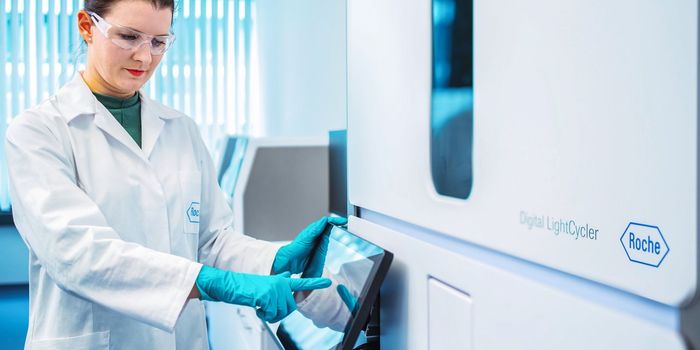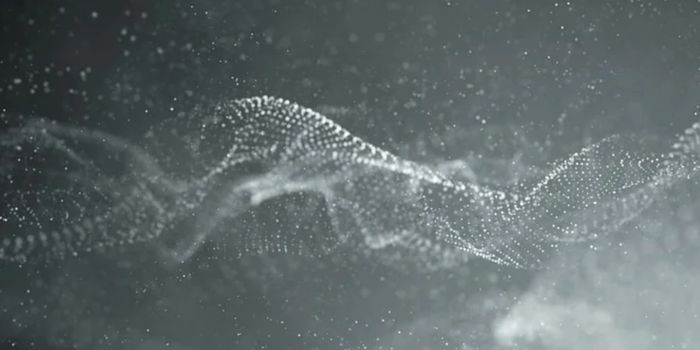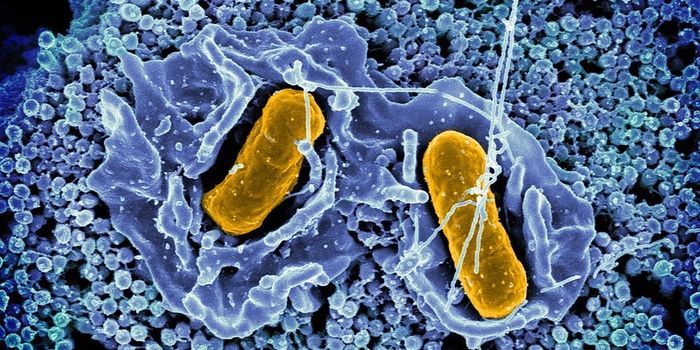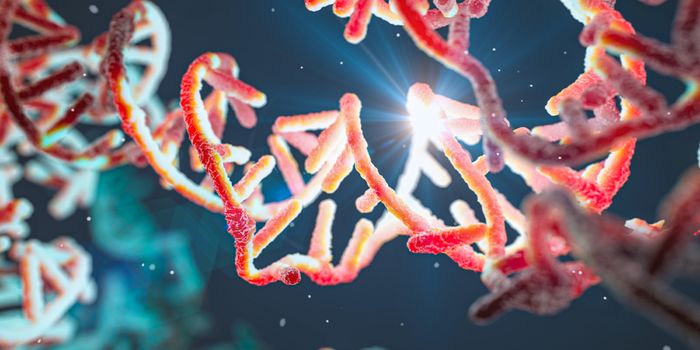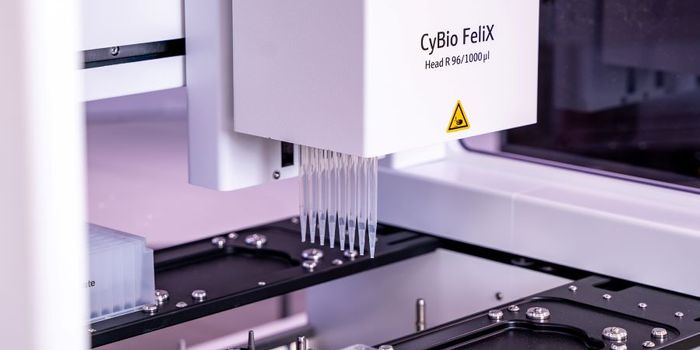Videos
From DNA to Protein
AUG 04, 2014 12:00 AM PDT
Share
Do We Make Friends Because We Like Their Genes?
 It's sometimes noted that friends tend to look or dress alike, but a new study, the results of which were recently published in PNAS (Proceedings of the National Academy of Sciences), reveals that the similarities go much deeper, in fact, to the genetic level. The study found that "Across the whole genome, friends' genotypes at the single nucleotide polymorphism level tend to be positively correlated (homophilic)." Researchers found that unrelated friends have one percent of genes which match, putting this on a par with the gene similarity of fourth cousins. Nicholas Christakis of the Human Nature Lab at Yale University stated, "One percent may not sound like much to the layperson, but to geneticists it is a significant number."
It's sometimes noted that friends tend to look or dress alike, but a new study, the results of which were recently published in PNAS (Proceedings of the National Academy of Sciences), reveals that the similarities go much deeper, in fact, to the genetic level. The study found that "Across the whole genome, friends' genotypes at the single nucleotide polymorphism level tend to be positively correlated (homophilic)." Researchers found that unrelated friends have one percent of genes which match, putting this on a par with the gene similarity of fourth cousins. Nicholas Christakis of the Human Nature Lab at Yale University stated, "One percent may not sound like much to the layperson, but to geneticists it is a significant number."The researchers used data from the well-known Framingham, Massachusetts heart-disease research project that since 1948 has been studying three generations of people. They looked at data from 1,932 study participants studying 1,367 friendship pairs. Within that group they examined 466,608 genetic markers and variants of those markers. Although participants in the Framingham study came from similar backgrounds (Most were white and many were of Italian descent.) the researchers controlled for this in their analysis.
There are at least four reasons why friends tend to be alike genetically. One is that this correlation may just be a result of the fact that people tend to make friends with people in the same geographic area or with people of similar ethnicity. Another is that people may choose to make friends with people with a similar genotype and may reject friendships with those with different genotypes, recognizing these similarities and differences by the way people look. Third, is that people may choose to spend time in particular types of environments, encountering people similar to them who become friends. Finally, people may be invited by others into particular environments where they meet similar people. These four reasons are not mutually exclusive nor are they the only reasons that people with similar genotypes may become friends. While there are some reasons that genetically dissimilar people may become friends, there are fewer reasons why this may result.
The tendency for people to have genetically similar friends seems to be rooted in evolutionary advantages. The ability to make friendships and the preference for those with similar genotypes is found in other animals such as dolphins and primates and seems to be part of a detection system that results in befriending "functional kin." Forming ties with people that react to the environment in the same way can have positive outcomes. For example, if a person builds a fire because he feels cold under the same conditions as someone else, both people benefit. Among the genes being studied, those affecting the sense of smell were most similar. It's possible that people who smell things the same way are drawn to similar environments where they become friends. So, maybe similar people hang around coffee shops where they enjoy the smell of coffee and make connections.
Natural selection depends on the reproductive success of certain genes. Christakis says our evolutionary fitness "depends not only on your own genotype but, also on the genotype of your friends." As the authors explained in their paper, "Our finding that positively correlated genotypes are under positive selection suggests that the genes of other people might modify fitness advantages of one's own genes, thus affecting the speed and outcome of evolution." In a statement to the Guardian Weekly, Robert Seyfarth, professor of psychology at the University of Pennsylvania commented on the research, "This is a very interesting, provocative answer to the question of why is it that humans are so hyper-social in their interactions. Why are they so friendly to strangers? Most animals don't encounter strangers at all."
You May Also Like
Loading Comments...

